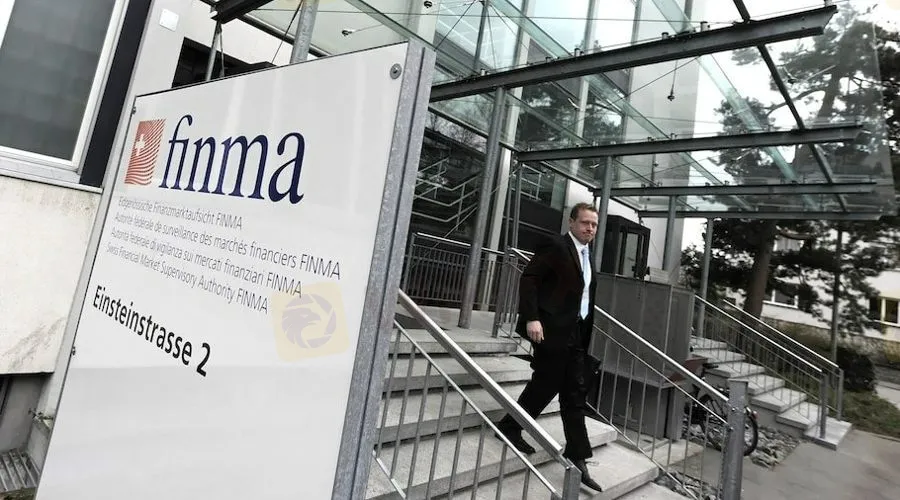简体中文
繁體中文
English
Pусский
日本語
ภาษาไทย
Tiếng Việt
Bahasa Indonesia
Español
हिन्दी
Filippiiniläinen
Français
Deutsch
Português
Türkçe
한국어
العربية
LCG Capital Markets Closes Due to FlowBank Bankruptcy
Abstract:LCG Capital Markets Limited, known as FlowBroker, ceases operations due to FlowBank SA's bankruptcy following FINMA's regulatory actions and the appointment of a liquidator.

LCG Capital Markets Limited, also known by its trade name “FlowBroker,” announced today that it will cease operations. The decision comes in the wake of bankruptcy proceedings against its parent company, FlowBank SA, launched by the Swiss Financial Market Supervisory Authority (FINMA) on June 13, 2024.
FINMA‘s actions were prompted by FlowBank’s failure to meet capital requirements, maintain organizational adequacy, and fulfill disclosure and reporting obligations. According to a statement, FINMA appointed Walder Wyss SA as the bankruptcy liquidator. The liquidation process is based at FlowBanks headquarters in Geneva.
“Due to significant agreements between LCG Capital Markets Limited and FlowBank SA, the appointment of the Liquidators has currently made it impossible for LCG Capital Markets Limited to carry out its operations,” the company stated.
LCG Capital Markets Limited has cited a “Force Majeure Event” under section 25 of its Terms and Conditions, which outlines scenarios preventing the company from fulfilling its obligations. The company added, “We may, in our reasonable opinion, determine that an emergency or an exceptional market condition exists which may prevent us from performing any or all of our obligations.”

The cessation of LCG Capital Markets Limiteds operations affects its clients who maintain funds with accounts at FlowBank SA.
The downfall of FlowBank SA is rooted in a series of regulatory breaches. FINMA initially intervened in October 2021, citing serious violations of supervisory laws, particularly regarding capital requirements and risk management. Subsequent measures included appointing an independent auditor and a monitor to oversee the banks activities. Despite these efforts, FlowBank continued to violate regulatory standards, including engaging in high-risk business relationships and inadequate financial reporting.
On March 8, 2024, FINMA withdrew FlowBank‘s license, disqualifying it from conducting proper business activities. The situation worsened when the bank’s financial statements revealed breaches of minimum capital requirements, leading to the opening of bankruptcy proceedings.
FlowBank, founded in 2020 by former LCG CEO Charles-Henri Sabet, offered services including cryptocurrency transactions and had strong ties with crypto asset manager CoinShares. However, FINMAs findings of over-indebtedness and regulatory violations led to its downfall.
FlowBanks bankruptcy affects its extensive client base, holding over 22,000 accounts with assets totaling nearly CHF 680 million. While deposits up to 100,000 Swiss francs are protected, the status of crypto deposits remains uncertain.

Disclaimer:
The views in this article only represent the author's personal views, and do not constitute investment advice on this platform. This platform does not guarantee the accuracy, completeness and timeliness of the information in the article, and will not be liable for any loss caused by the use of or reliance on the information in the article.
Read more

SEC Ends Crypto.com Probe, No Action Taken by Regulator
The SEC has closed its investigation into Crypto.com with no action taken. Crypto.com celebrates regulatory clarity and renewed momentum for the crypto industry.

Bitpanda Secures Full Broker-Dealer License in Dubai
Bitpanda has officially obtained a full broker-dealer license from the Dubai Virtual Assets Regulatory Authority (VARA), marking a significant milestone in its international expansion. This approval, which follows preliminary authorization granted three months earlier, enables the European digital asset exchange to introduce its comprehensive suite of virtual asset services to investors in the United Arab Emirates (UAE).

Interactive Brokers Expands Crypto Trading with Solana, XRP, Cardano, and Dogecoin
Interactive Brokers adds Solana, XRP, Cardano, and Dogecoin to its platform, enabling U.S. and U.K. clients to trade crypto 24/7 with low fees.

Gold Surges to New Highs – Is It Time to Buy?
Recently, gold prices have once again set new records, surpassing $3,077 per ounce and continuing a four-week winning streak. Is It the Right Time to Invest?
WikiFX Broker
Latest News
Enlighten Securities Penalized $5 Million as SFC Uncovers Risk Control Failures
Why Are Financial Firms Adopting Stablecoins to Enhance Services and Stability?
Experienced Forex Traders Usually Do This Before Making a Lot of Money
Octa vs XM:Face-Off: A Detailed Comparison
When High Returns Go Wrong: How a Finance Manager Lost RM364,000
Bridging Trust, Exploring Best—WikiEXPO Hong Kong 2025 Wraps Up Spectacularly
Fidelity Investments Explores Stablecoin Innovation in Digital Assets Sector
Interactive Brokers Expands Crypto Trading with Solana, XRP, Cardano, and Dogecoin
SEC Ends Crypto.com Probe, No Action Taken by Regulator
Why More People Are Trading Online Today?
Currency Calculator







